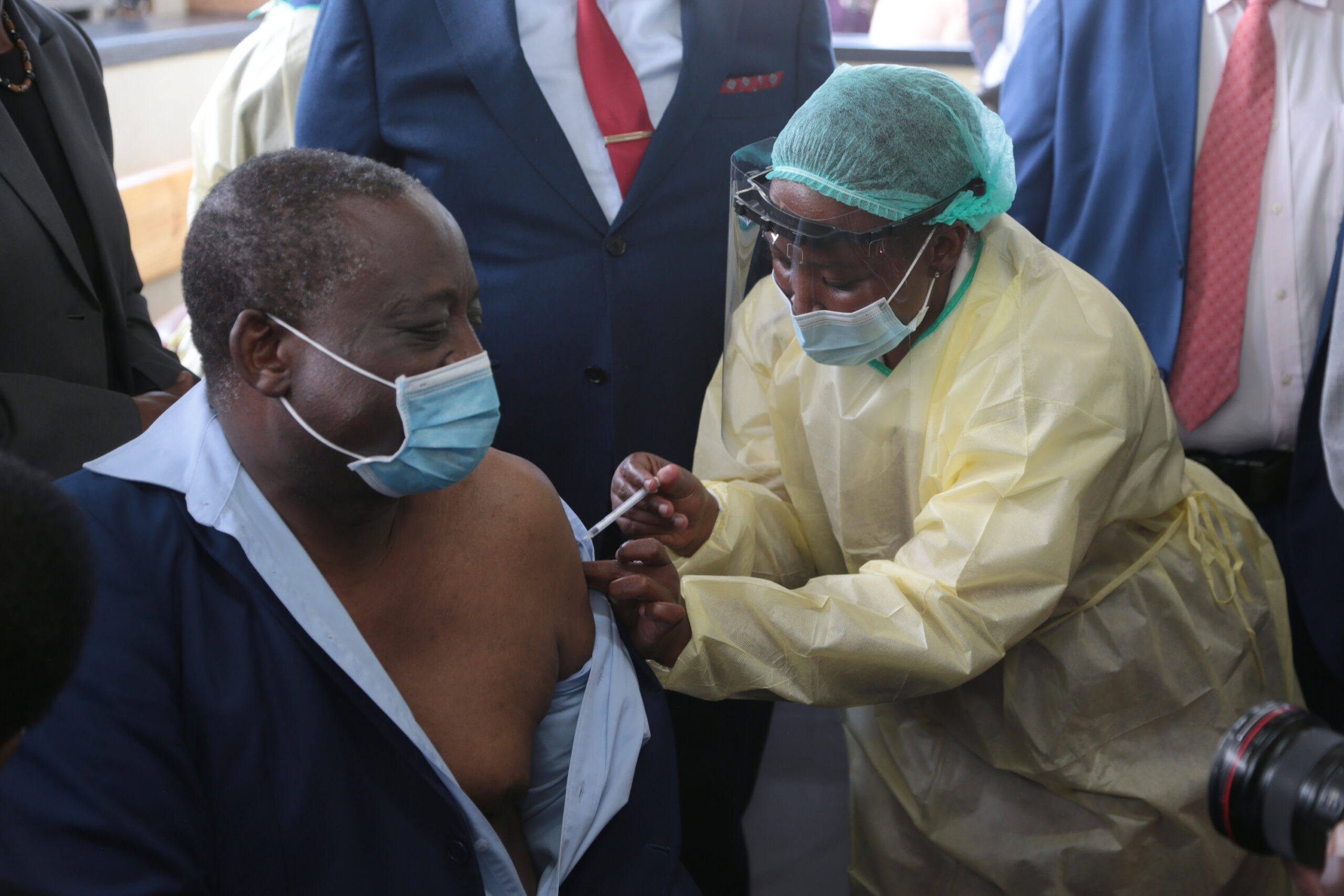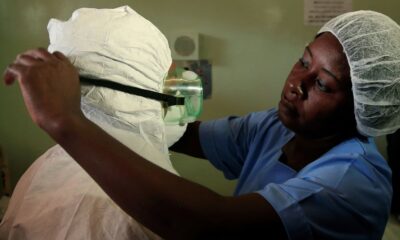NYASHA CHINGONO
DESPITE widespread scepticism among frontline health workers over the efficacy of the Sinopharm vaccine, numbers of those inoculated have been encouraging, health authorities say.
In Harare, more than 1 000 health professionals have been immunised, while hundreds have received their first dose in Bulawayo and other provinces.
Zimbabwe last week received 200 000 doses of the Sinopharm vaccine from China, with vice-president, Constantino Chiwenga volunteering to receive the first shot.
The acting Harare town clerk, Prosper Chonzi, said between 600 to 700 health workers are receiving the Sinopharm shot daily.
“The uptake has been good. It is a new vaccine but if you are vaccinating between 600 to 700 per day, that is good,” Chonzi told The NewsHawks.
However, Chonzi admitted that there was still widespread scepticism among the frontline health workers, some of whom are adopting a cautious approach.
“The scepticism is understandable, and many people will eventually come on board. We have been getting requests from the parliament, lawyers and other groups who are not necessarily frontline health workers,” Chonzi said.
“We started on Monday, so it has just been a few days, but we have already breached the 1 000 mark and I am happy.”
The vaccination of frontline workers is voluntary, and the two doses are administered 28 days apart.
The efficacy of the Sinopharm vaccine has been questioned by some experts who argue that the Chinese shot should undergo local clinical trials to ascertain its effectiveness against emerging variants and mutations.
Last week, the Zimbabwe Lawyers for Human Rights wrote to the government, urging the authorities to ensure that local clinical trials are conducted to ensure the safety of citizens.
However, Chonzi said based on the successful countrywide rollout of the Sinopharm vaccine, Zimbabweans should be safe.
“Having local clinical trials would just boost confidence in the vaccine but the vaccine has been widely used. From a scientific point of view, we should be fine. In the meantime, studies are still being done for a cure over and above the masking, sanitisers and social distancing. We should be fine,” Chonzi added.
The country’s doctors who have been in the forefront of demanding vaccines, this week launched an online campaign to encourage their colleagues and the public to undergo vaccination.
“Most doctors are getting the vaccine and it is encouraging.
It is important because it helps instil confidence in the public. People trust us so they would also take the vaccine when it becomes available.
I have convinced several people to change their minds on the vaccines; a lot of people were afraid.
It is also crucial because they are frontline health workers,” Zimbabwe Association of Doctors for Human Rights president Norman Matara said.
Matara added: “If we don’t take it (vaccine), risks of exposure are high and chances of being absent from work are high.”
Doctors this week took to social media, openly displaying their vaccination cards.
“It is something that will go a long way in advocating for the vaccine. So, we encourage each other to post on our statuses so that we can reach a wider audience.
“Since we were advocating for vaccines, they wanted to see if would be the first to get the vaccine,” Matara said.
While doctors are buoyant about the vaccines, nurses have continued sitting on the fence, resulting in low uptake of the Sinopharm vaccine.
According to the Zimbabwe Nurses’ Association president, Enock Dongo, nurses were demanding full information on the side effects of the vaccine.
Failure to convince the nurses to participate in the first phase of the vaccination programme could result in low public confidence, Dongo warned.
“There are some nurses who have been inoculated; I do not have the statistics. They are sceptical because there is no information. There is a lot of misinformation out there,” Dongo said.
“We encourage government to talk to employee organisations to deal with misinformation. I think if should not miss this opportunity to instil confidence in the public.”
He added: “We are just letting our members decide whether they want to get the vaccine or not. We might have a problem if the turnout remains low. The citizens will refuse the vaccine if we don’t get the nurses’ buy in.”
On Wednesday, China pledged a donation of a further 200 000 doses of the Sinopharm vaccine, while the government is planning to take delivery of 600 000 shots next week.
According to the Finance ministry, the government has set aside US$100 000 million for the purchase of vaccines, as the country intensifies the fight against Covid-19.
Zimbabwe has seen a surge in Covid-19 cases since the Christmas holidays, recording more than 1 000 fatalities.





















